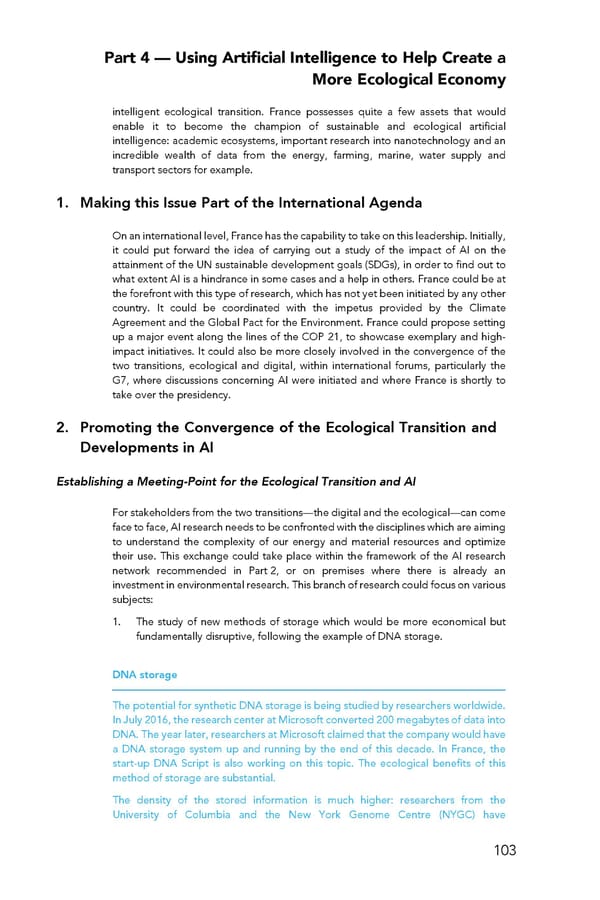Part 4 — Using Artificial Intelligence to Help Create a More Ecological Economy intelligent ecological transition. France possesses quite a few assets that would enable it to become the champion of sustainable and ecological artificial intelligence: academic ecosystems, important research into nanotechnology and an incredible wealth of data from the energy, farming, marine, water supply and transport sectors for example. 1. Making this Issue Part of the International Agenda On an international level, France has the capability to take on this leadership. Initially, it could put forward the idea of carrying out a study of the impact of AI on the attainment of the UN sustainable development goals (SDGs), in order to find out to what extent AI is a hindrance in some cases and a help in others. France could be at the forefront with this type of research, which has not yet been initiated by any other country. It could be coordinated with the impetus provided by the Climate Agreement and the Global Pact for the Environment. France could propose setting up a major event along the lines of the COP 21, to showcase exemplary and high- impact initiatives. It could also be more closely involved in the convergence of the two transitions, ecological and digital, within international forums, particularly the G7, where discussions concerning AI were initiated and where France is shortly to take over the presidency. 2. Promoting the Convergence of the Ecological Transition and Developments in AI Establishing a Meeting-Point for the Ecological Transition and AI For stakeholders from the two transitions—the digital and the ecological—can come face to face, AI research needs to be confronted with the disciplines which are aiming to understand the complexity of our energy and material resources and optimize their use. This exchange could take place within the framework of the AI research network recommended in Part 2, or on premises where there is already an investment in environmental research. This branch of research could focus on various subjects: 1. The study of new methods of storage which would be more economical but fundamentally disruptive, following the example of DNA storage. DNA storage The potential for synthetic DNA storage is being studied by researchers worldwide. In July 2016, the research center at Microsoft converted 200 megabytes of data into DNA. The year later, researchers at Microsoft claimed that the company would have a DNA storage system up and running by the end of this decade. In France, the start-up DNA Script is also working on this topic. The ecological benefits of this method of storage are substantial. The density of the stored information is much higher: researchers from the University of Columbia and the New York Genome Centre (NYGC) have 103
 For a Meaningful AI - Report Page 103 Page 105
For a Meaningful AI - Report Page 103 Page 105